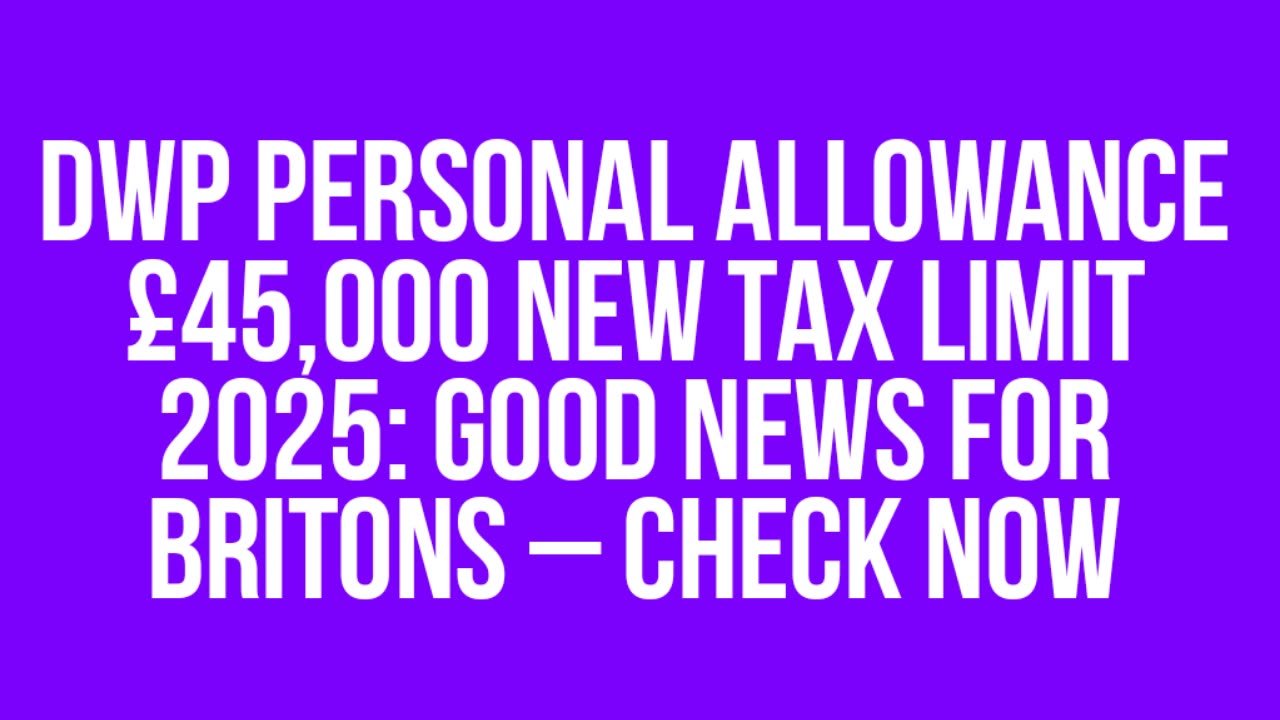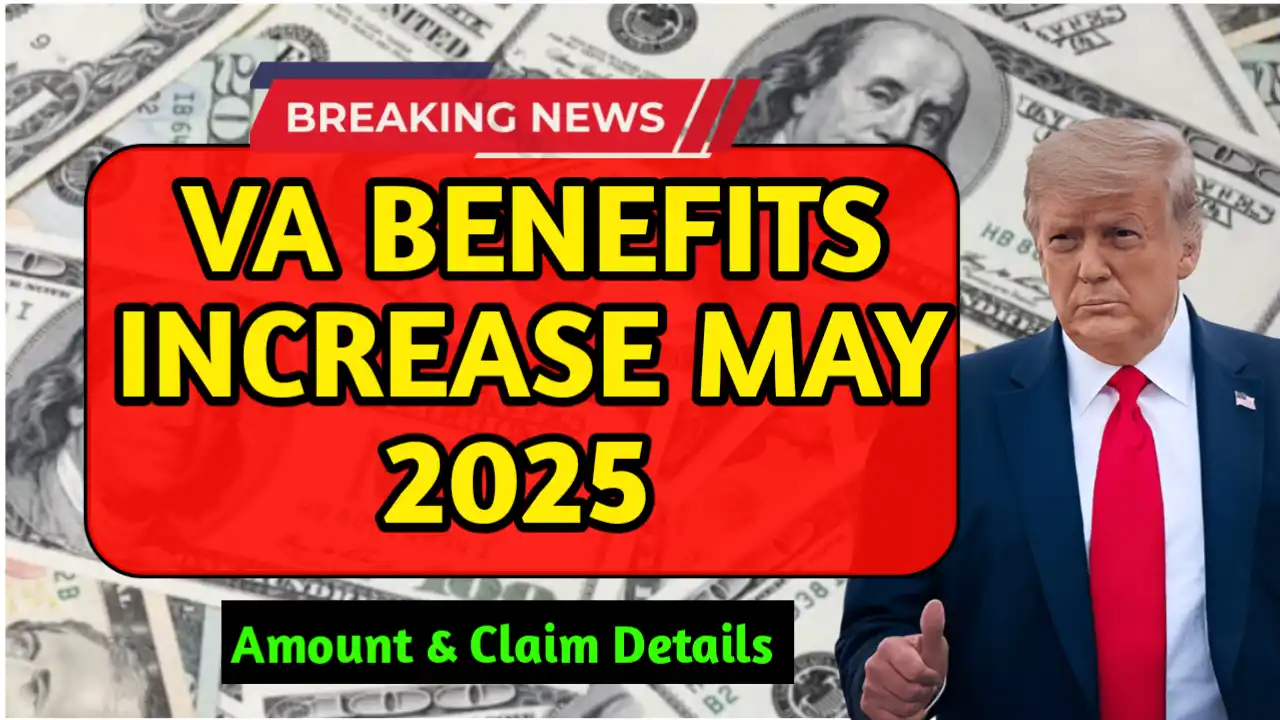DWP Personal Allowance £45,000 NEW TAX LIMIT 2025: Good News for Britons – Check Now ; In a bold move aimed at easing the cost-of-living burden, the UK Government is proposing a new personal tax allowance limit of £45,000 starting in the 2025/26 tax year. If passed, this measure would represent one of the most generous tax thresholds in British history, potentially benefiting millions of workers, pensioners, and low-to-middle income households.
Backed by mounting pressure to support everyday Britons amid rising inflation and stagnating wages, this proposal signals a significant shift in income tax policy.
What Is the Personal Allowance?
The personal allowance is the amount of income an individual can earn before paying income tax in the UK. As of the 2024/25 tax year, the standard personal allowance stands at £12,570 and has been frozen since 2021. The proposed £45,000 threshold would mark a dramatic increase.
What Does a £45,000 Personal Allowance Mean?
If approved, the proposed £45,000 personal allowance means individuals would not pay any income tax on their first £45,000 of earnings.
Key Implications of the Change
- More Take-Home Pay: Workers could retain thousands more each year.
- Lower Tax Bills: Reduced income tax liability across all bands.
- Increased Disposable Income: More money for savings, essentials, and consumer spending.
- Support for Pensioners: Retirees with modest income could pay no tax at all.
Comparison: Current vs. Proposed Personal Allowance
Here’s how the current allowance stacks up against the proposed 2025 figures:
| Tax Year | Personal Allowance | Estimated Annual Tax Saving (Basic Rate Earner) |
|---|---|---|
| 2024/25 | £12,570 | — |
| 2025/26 (Proposed) | £45,000 | Approx. £6,540 (based on 20% rate) |
Note: The savings estimate is based on applying the basic 20% income tax rate to the difference in untaxed income.
Who Will Benefit from the New Limit?
1. Full-Time Employees
Employees earning between £15,000 and £50,000 are expected to see the most substantial relief. These workers have been hit hardest by the cost-of-living crisis and will gain the most in reduced tax deductions.
2. Self-Employed & Freelancers
The self-employed and gig workers often face fluctuating income and tax unpredictability. This higher allowance provides a larger tax-free cushion, helping them stabilize finances.
3. Pensioners and Fixed-Income Households
Retired individuals receiving pensions or investment income below £45,000 would potentially pay zero income tax.
Is This Change Confirmed?
As of July 2025, the proposal is under review by the Treasury and Parliament. The Department for Work and Pensions (DWP) has expressed support, noting the measure could reduce the reliance on state benefits and increase net household income.
Timeline for Potential Implementation
| Stage | Expected Date |
|---|---|
| Treasury Draft Announcement | July 2025 |
| Parliamentary Debate | September 2025 |
| Final Approval (If Passed) | December 2025 |
| Implementation in Tax Code | April 6, 2026 |
Economic Impact of the £45,000 Allowance
Economists predict the change could:
- Stimulate consumer spending
- Reduce inflationary pressure by lifting net income
- Decrease benefit dependency
- Improve national savings rate
However, it may also reduce overall tax revenue, prompting calls for spending cuts or alternative tax reforms.
What Britons Should Do Now
1. Check Your Income Bracket
If your income is under £45,000, this proposed allowance would eliminate your income tax bill entirely, barring any other taxable sources.
2. Plan Tax Strategies
Start working with a tax adviser to plan for the upcoming year. You might adjust salary packages, pensions, or self-employment contributions accordingly.
3. Monitor Official Announcements
Follow updates from HMRC, the DWP, and GOV.UK for real-time changes and confirmation of the new rules.
Frequently Asked Questions (FAQs)
1. Is the £45,000 allowance guaranteed to take effect?
No. It is currently a proposal awaiting parliamentary approval. If passed in late 2025, it would take effect from April 2026.
2. Will this apply to everyone equally?
Yes, the allowance would apply to all UK residents subject to income tax, including employees, pensioners, and the self-employed.
3. Will National Insurance thresholds also increase?
There is speculation that NI thresholds may be raised in tandem, but no official confirmation has been given as of July 2025.
4. How will this affect high earners?
High earners (over £100,000) may still see their personal allowance gradually reduced under current tapering rules unless those are revised.
5. What happens to existing tax bands?
The government may adjust higher-rate and additional-rate thresholds upward to align with the new personal allowance, but these details have not yet been finalized.
Final Thoughts
The proposed £45,000 personal allowance for 2025/26 is one of the most significant tax reforms in recent UK history. If implemented, it would represent a massive win for working- and middle-class Britons, pensioners, and self-employed individuals. While it’s not yet law, the growing political momentum and public support suggest it could soon become reality.
Stay informed, check your eligibility, and start planning for a potentially brighter financial future.






